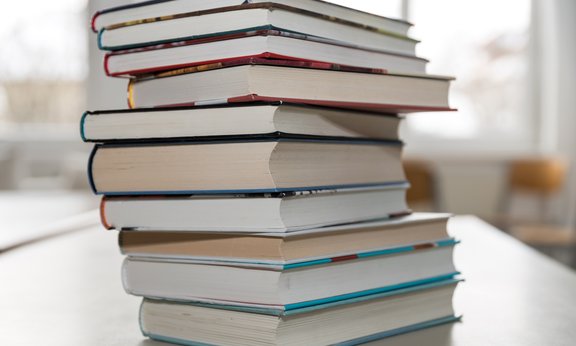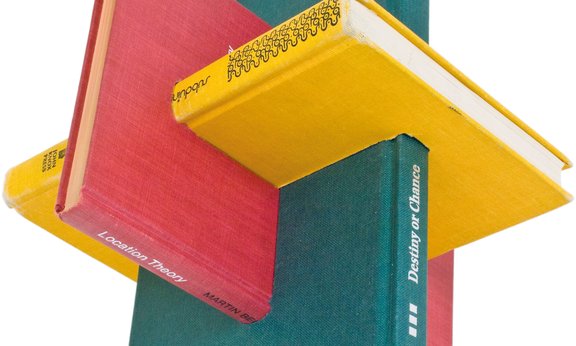Bachelor’s Programme German Philology
Would you like to analyze the German language and develop critical linguistic and aesthetic judgment as well as understand cultural trends?
The students of the Bachelor’s Degree Programme in German Philology acquire basic theoretical and methodological knowledge in literature studies, linguistics, writing and oral interaction. In this programme the students not only learn about literature itself but also about instruments for understanding and interpreting historical-social contexts by investigating the changing functions of literature.
Please note: the language of instruction for this programme is German.
Study code
UC 033 617
Supplemental examination
Supplemental examination in Latin is required before completion of the bachelor's degree programme if this subject was not completed satisfactorily with at least 10 credit hours at a higher-level secondary school.
FAQ
Graduates are able to elaborate, evaluate and implement scientific developments in the fields of language and literature and to apply them in interdisciplinary contexts. They possess scientifically well-founded theoretical and methodical problem-solving skills and key competences such as good verbal and written expression, aesthetic sensitivity and critical faculty.
The objective of the Bachelor's Programme German Philology is scientific examination of German language and literature, its development and functions in present and history as well as the cultural, social and anthropological-symbolic processes they are embedded in. Thus, language and literature are to be understood as comprehensive cultural phenomena which help to recognise, understand and form them and foster reflection about social and cultural processes, also in view of future development; a special emphasis is put on the gender aspects which also characterise language and literature in our culture. Thus, besides sound knowledge of historical, systematic and pragmatic aspects of language and literature and an insight into conveyance of literature in practice, knowledge of the media, their structures, action mechanisms and creative possibilities require considerable space within the Bachelor's Programme in German Philology.
Studying the fundamentals and characteristics of oral and written communication and acquisition of high level oral and written language skills are other high priority objectives. As completion of the study programme is prerequisite for further scientific study programmes, teaching is scientific-based with a large diversity of theory; however, profession-relevant components in terms of practice-orientation and thus issues of teaching language and literature are also highly considered.
The Bachelor's Programme German Philology qualifies graduates for all occuptional fields of cultural life. They are prepared for a wide range of activities and careers in publishing, media, bookstores, public libraries, proofreading and editorial work, journalistic and publishing activities in print media, radio, television and new media as well as in public relations or in the tourism industry.
In additon to activities in cultural administration and mediation, the study programme prepares for occupational fields in international cultural and educational change or in public and private adult education as well as in public relations.
Graduates tracking: Shows which occupational fields students enter after graduation
Faculty of Language, Literature and Culture Department of German Studies Examination Office Information for students with disabilities
Curriculum
From the field
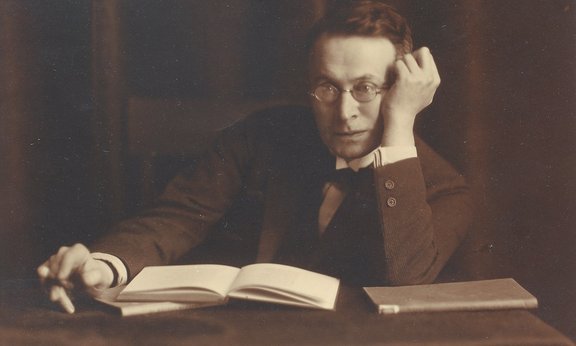
Uni Innsbruck feiert Karl Kraus
Zum 150. Geburtstag von Karl Kraus (1874–1936) erinnert das Forschungsinstitut Brenner-Archiv der Universität Innsbruck mit einem bunten Veranstaltungsreigen an den österreichischen Schriftsteller und „Fackel“-Herausgeber. Mit der Sammlung Friedrich Pfäfflin verfügt das universitäre Literaturarchiv über eine umfang- und raritätenreiche Sammlung zu Karl Kraus.
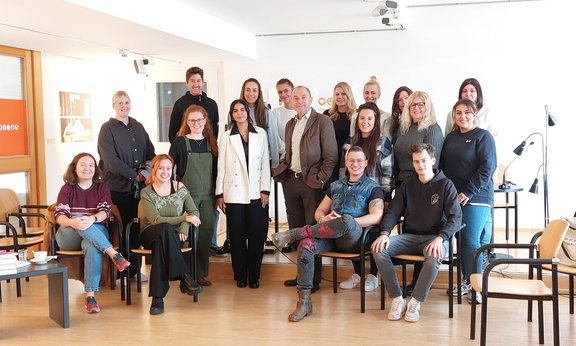
Tiefenbohrungen: Zu Norbert Gstreins Poetik
Mitte November war der aus Tirol gebürtige Autor Norbert Gstrein zu Gast im Forschungsinstitut Brenner-Archiv und im Literaturhaus am Inn. Eine internationale Tagung widmete sich verschiedenen Themen und Aspekten in Gstreins Oeuvre. Studierende erhielten die einzigartige Gelegenheit, mit dem Autor und den Referent:innen ausführlich ins Gespräch zu kommen und schildern ihre Eindrücke.
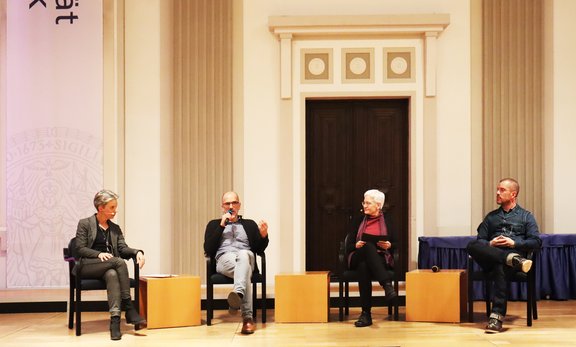
„Alles Theater!? Wozu brauchen wir Inszenierungen?“
Theatralität, Inszenierung und Performativität sind wesentliche Merkmale von Theateraufführungen. Sie sind aber auch zentral in anderen Genres wie beispielsweise in der politischen Kommunikation, der Werbung, der Wissenschaft, der Selbstdarstellung in Sozialen Medien, der Inszenierung in Sportereignissen oder in den Leitbildern von Unternehmen.
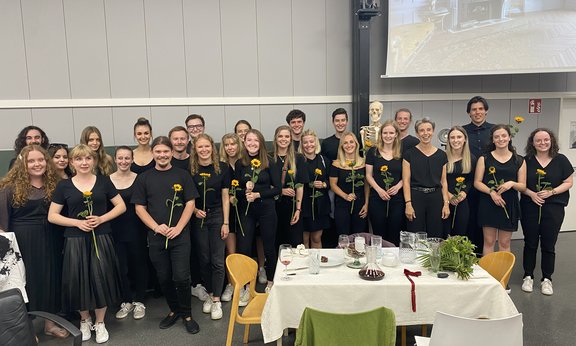
Verrücktes und Geistvolles im Hörsaal 4
Studierende des Unterrichtsfaches Deutsch führten in einer szenischen Lesung „Ritter, Dene, Voss“ von Thomas Bernhard auf. Das Stück handelt von drei Geschwistern, die in enger psychischer und existenzieller Verklammerung leben. Die Studierenden übernahmen sämtliche Aufgaben von Catering, Marketing und Kostümgestaltung bis hin zu den Hauptrollen.
Related studies

English and American Studies (Bachelor)
Bachelor of Arts

Educational Sciences (Bachelor)
Bachelor of Arts

History (Bachelor)
Bachelor of Arts

French (Bachelor)
Bachelor of Arts


